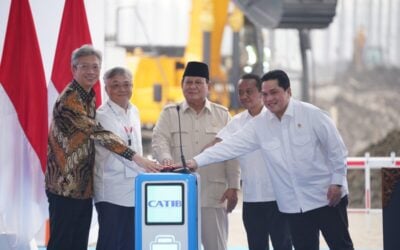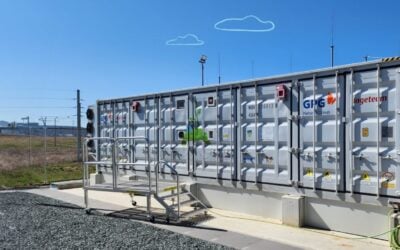Qatar as seen from space by NASA. Solar-plus-storage will be in use at the oil-rich country's first ever extraction site.
Solar power systems serving an oilfield in Qatar will be fitted with utility-scale energy storage batteries, helping to ensure the continuity of operations at 775 oil wells.
French industrial energy storage maker SAFT said it had been awarded a contract worth around US$10 million for the project by engineering contractor Kentz. SAFT will supply 40,000 of its ‘Sunica.plus’ nickel batteries to the wells at Dukhan oilfield. The batteries will provide backup and other storage applications to control systems for the field’s wellheads and corrosion protection systems.
Enjoy 12 months of exclusive analysis
- Regular insight and analysis of the industry’s biggest developments
- In-depth interviews with the industry’s leading figures
- Annual digital subscription to the PV Tech Power journal
- Discounts on Solar Media’s portfolio of events, in-person and virtual
Dukhan is around 80km by 8km in area, owned and operated by Qatar Petroleum, itself a state-owned company. It was the first site where oil was drilled for in the country, in 1937. The addition of SAFT energy storage complements a much bigger contract undertaken by Kentz, worth around US$190 million, to provide sophisticated data acquisition and supervisory controls to Dukhan’s wellheads. The PV systems that the Sunica.plus batteries will be combined with are used to power this new infrastructure as well as the corrosion protection systems.
SAFT says the Sunica.plus was designed with high cycling capability and robust construction with this kind of off-grid installation in mind, claiming the Sunica.plus can operate at temperatures between -20 centigrade and 50 centigrade, which is likely to be required in the subtropical hot desert climate of Qatar.
In other regions including Australia and Latin America, various off-grid applications, including in the mining sector, are being provided by solar in combination with storage. Often due to the high cost of diesel fuel, which was the previous energy source of choice at many remote locations, solar is starting to be seen as an economical replacement.
The Middle East as a whole has not seen as much progress in solar as might have been hoped, with Saudi Arabia in particular the subject of numerous instances of false starts for the region’s PV industry. In a recent piece for PV Tech Storage’s sister publication PV Tech Power on how the Middle East is slowly beginning to realise its solar potential, the CEO of an Abu Dhabi-based EPC firm said that rather than government targets and schemes, solar in the region is driven primarily by the market.
“We’re a lot more competitive with today’s cost of solar than the delivered cost of electricity from oil power plants and diesel, which is what we’re displacing a lot of the time,” Sami Khoreibi of Enviromena said.
“Solar projects are being driven and led by private sector players outside of the framework of government programmes. We’re simply displacing higher cost energy. The underlying economics of any source of energy are what is going to drive growth in an industry and, for solar, they are quite compelling.”
Khoreibi mentioned countries including Egypt and Jordan, where the delivered costs of electricity are high, as examples where this has already occurred. The PV Tech Power article selected these two and a number of other notable countries including the UAE and Turkey where PV deployment is starting to gain momentum. Qatar was not one of the regions chosen, but the latest announcement from SAFT appears to imply that this may not remain the case for long.






